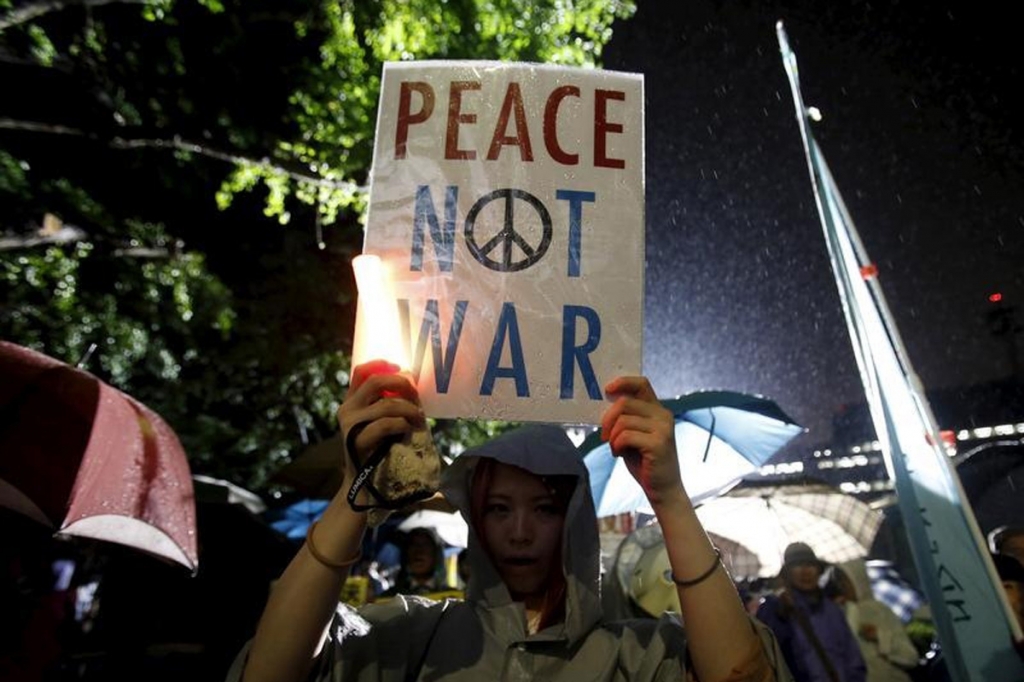-
Tips for becoming a good boxer - November 6, 2020
-
7 expert tips for making your hens night a memorable one - November 6, 2020
-
5 reasons to host your Christmas party on a cruise boat - November 6, 2020
-
What to do when you’re charged with a crime - November 6, 2020
-
Should you get one or multiple dogs? Here’s all you need to know - November 3, 2020
-
A Guide: How to Build Your Very Own Magic Mirror - February 14, 2019
-
Our Top Inspirational Baseball Stars - November 24, 2018
-
Five Tech Tools That Will Help You Turn Your Blog into a Business - November 24, 2018
-
How to Indulge on Vacation without Expanding Your Waist - November 9, 2018
-
5 Strategies for Businesses to Appeal to Today’s Increasingly Mobile-Crazed Customers - November 9, 2018
Controversial security bills approved in Japan
Opposition parties have promised to keep trying to delay the bills’ passage, through censure motions and other tactics, possibly including walking at an extremely slow pace to the final vote.
Advertisement
Opposition members surged toward the chairman’s seat as they realised something was amiss after ruling party legislators had surrounded him at the podium.
“You saw the scene”.
The ruling party’s ploy ended nearly 24 hours of delaying tactics by the opposition, which plans more when the full upper house takes up the bills.
Opponents argue the new laws – which would allow the tightly restricted military to intervene overseas to defend its allies – violate Japan’s pacifist constitution and could see the country dragged into American wars in far-flung parts of the globe.
Abe and his supporters say the changes are necessary to deal with a changing security environment marked by an increasingly assertive China and unpredictable North Korea.
The debate was due to begin at 0900 GMT but opposition party members gathered at the entrance to the room and prevented the committee chairman from beginning the procedures.
“Japanese are often seen as modest and humble, but it’s not the case this time”, said Ryoko Ikeda, a 36-year-old mother at one of the daily rallies against the bills held near parliament for the past weeks.
The bills have already been approved by the lower house.
As the drama played out in parliament, a few hundred protesters rallied outside the building under a steady rain, after a bigger demonstration by thousands the previous night.
The protests have called to mind those that forced Abe’s grandfather, Nobusuke Kishi, to resign 55 years ago after forcing a U.S.-Japan security treaty through parliament.
A group of students has emerged as leaders of the protests, which have grown to tens of thousands who fill the streets outside parliament every Friday and often on weekends.
This argument may be strategically reasonable, but it has met stiff resistance from the Japanese legal community, with what the L.A. Times describes as “a large majority of Japan’s legal scholars” believing the bill is unconstitutional.
Abe is keen to get the bills passed before a three-day holiday next week.
Advertisement
While it looks like little can now stop the bills, they have taken a toll on Abe’s once high popularity and opinion polls show most voters overwhelmingly oppose them. “We must join our forces and block their ploy”, he said.





























